EN | ESP
The Harakmbut indigenous people of Shintuya have maintained their language and culture despite 70 years of forced assimilation by missionaries, loggers, and goldminers.
Located on the upper Madre de Dios River in the Manu Biosphere Reserve, Shintuya clusters around a Dominican missionary settlement built in 1954. The 220 people of Shintuya are direct descendants of the estimated 2,500 people decimated in the 1940s during evangelical missions by Catholic priests who carried diseases that their immune systems couldn’t tolerate.
In 2020, Rainforest Flow initiated a WASH program in Shintuya, as a part of COVID prevention in the region.
Before we arrived in Shintuya, an existing government water and sanitation system had collapsed. Unsafe stream water was being delivered directly to household taps. Their concrete sinks were deteriorated and unhygienic. Wastewater from the septic system had overflowed into the nearby river being used for bathing, washing, and drinking. Diarrhea, skin fungus, and weak immune systems threatened the health of the people.
In partnership with the families, local health personnel and schoolteachers, our three-year commitment in Shintuya includes ongoing hygiene education activities for children and families and continued monitoring to evaluate health outcomes. The water and sanitation committee also receives ongoing technical and vocational training to support long term project sustainability.
Rainforest Flow completely overhauled Shintuya’s water system within five months and installed slow sand filters, making the water safe to drink.
© 2022 RAINFOREST FLOW. All rights reserved.

From the time she found her way to an indigenous village in the Peruvian Amazon during a trip to “access a deeper knowing” in her life in 1999, this former Los Angeles fashion and advertising photographer’s commitment to improving the health of children and families in the Manu Biosphere Reserve and National Park has only grown stronger.
Nancy’s can-do spirit, positivity, love of nature, and seeing the good in people, are the heartbeat of Rainforest Flow. They are the driving force that has guided the organization’s vision for more than 20 years.
After piloting a successful 5-year culturally integrated water, sanitation, health, and technical and vocational training programs in the indigenous village of Huacaria, Nancy scaled and replicated the program in three additional communities.
Under Nancy’s guidance, Rainforest Flow has positively impacted the health of three generations of indigenous people in Peru’s Amazon rainforest.
She attributes much of her perseverance to lessons learned from her daily paper route and growing up after school at the Girls Club of America in Bristol, Connecticut, the generosity of mentors along the way, and the love of her close-knit Italian family.
Nancy’s sights are now set on building a permanent physical home for The Rainforest Flow WASH Education + Research Center (WERC) in the rainforest. The Center will be a gathering place for indigenous people to learn and share information, to become stewards of the health of their communities and environment.
Nancy spends half of her life in the rainforest and most of the rest collaborating with donors, community organizations, anthropologists, health experts, engineers, and technology partners to realize this Center, and her dream to help tens of thousands of indigenous people gain access to life-giving human services.

A Peruvian board member, master builder, hydraulic expert, and self-taught engineer, Caleb’s love of indigenous rainforest cultures and his keen workmanship are the foundation for all our projects.
Caleb has spent more than 30 years building and supervising water and sanitation projects throughout Peru. He is responsible for all of Rainforest Flow’s construction and technical and vocational training programs and spends about 10 months each year in the field working with indigenous communities and our collaborative partners around the world.
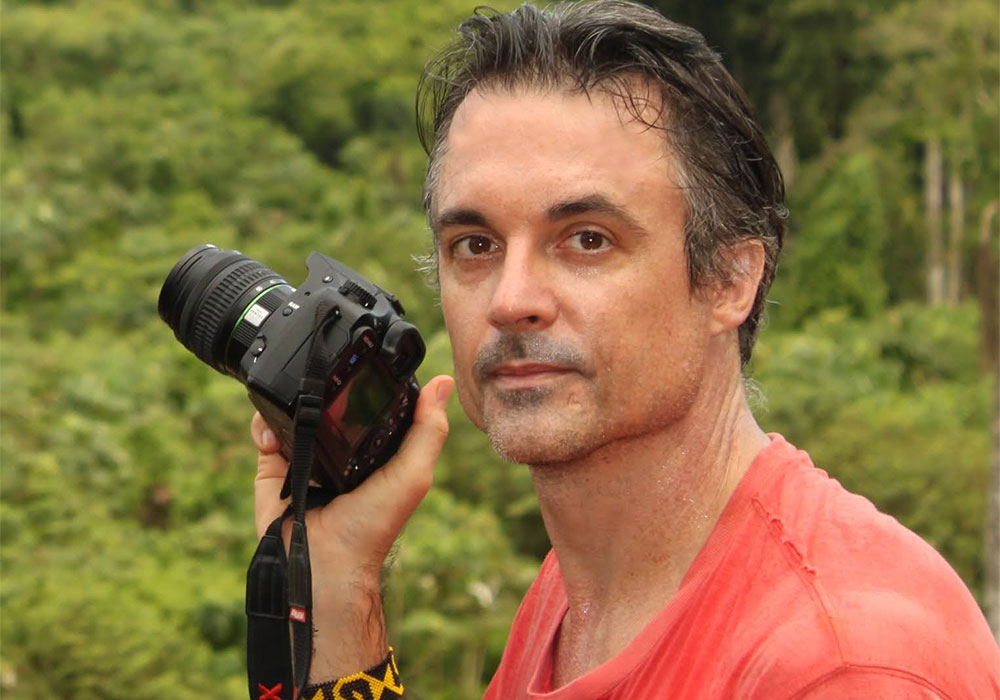
Dr. Shepard’s work focuses on the indigenous peoples of the Amazon with special attention on shamanism, medicinal plants, and traditional environmental knowledge.
A researcher in Indigenous Ethnology at the Museu Paraense Emilio Goeldi in Belém, Brazil, Dr. Shepard has been a consultant for Rainforest Flow since 2003. He speaks 11 languages, including Matsigenka, and has done fieldwork with indigenous and tribal in Latin America, Asia, and the Middle East. Dr. Shepard has published more than 100 scientific papers and also made a number of prize-winning documentary films.
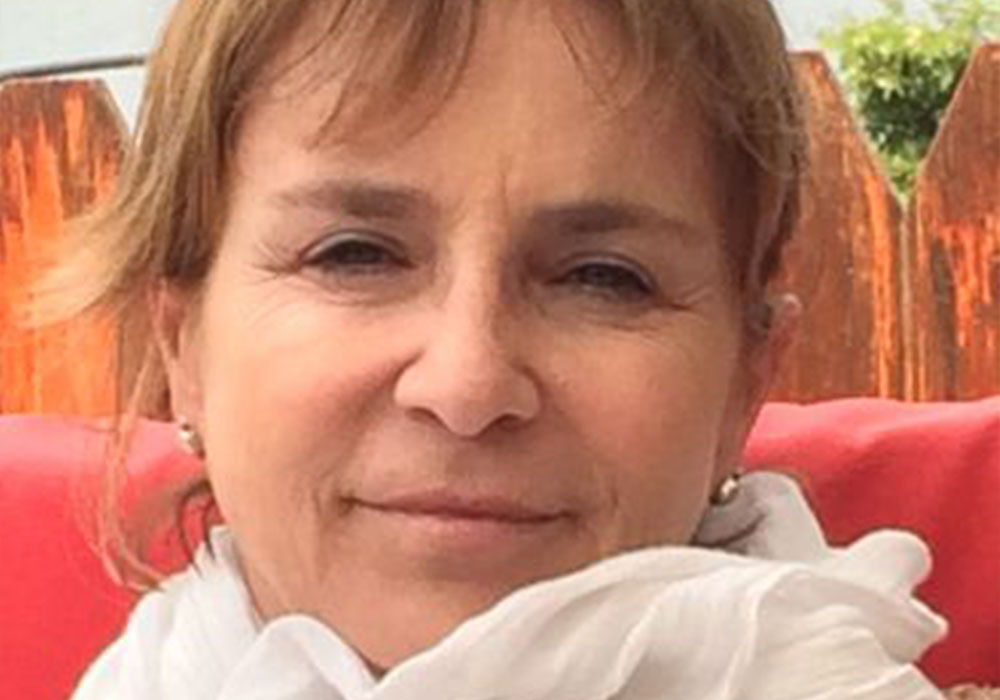
Dr. Izquierdo has been a consultant and guiding force of our team since 2004. She is a world-renown expert on the Matsigenka people in the Peruvian Amazon, the Mapuche in Chile as well as middle-class American families. Dr. Izquierdo's continuous research provides important insights into improving the health and well-being of people around the world.
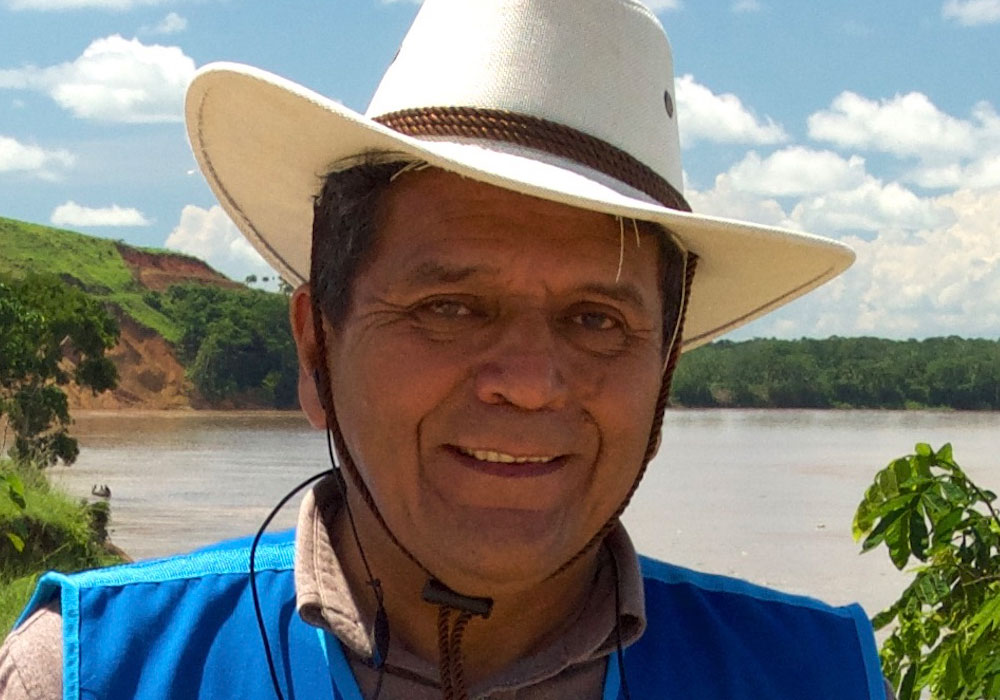
Moises Mera Barrios is a respected Peruvian Sanitary Engineer with over 25 years of professional experience in both the private and public sectors. He specializes in potable drinking water systems and sanitary waste disposal for rural areas and native communities, with specific detail to sustainability, community participation, technologies, investments, economic efficiency, social equity, and conservation of the environment.
In 2004, Moises joined Rainforest Flow to collaborate with US environmental engineer Humphrey Blackburn, a slow sand filter expert, to design and supervise the building of our water and sanitation infrastructure. Moises’ low-tech approach and keen ability to work with and understand the needs of indigenous rainforest cultures make him a valued member of our team.

Prof. Douglas W. Yu is an ecologist who conducted research on ethnoecology and people-park conflicts, the evolution of symbiosis and microbiomes, the development of spatial models of species coexistence, and the use of metabarcoding to census biodiversity at large scales. Much of this research was carried out in Manu Park over a period of 20 years. Extensively published, Dr. Yu holds faculty positions at the University of East Anglia in the UK and at the Kunming Institute of Zoology, in China. He is co-founder of the firm NatureMetrics, which provides DNA-based biodiversity assessment services to industry and government.
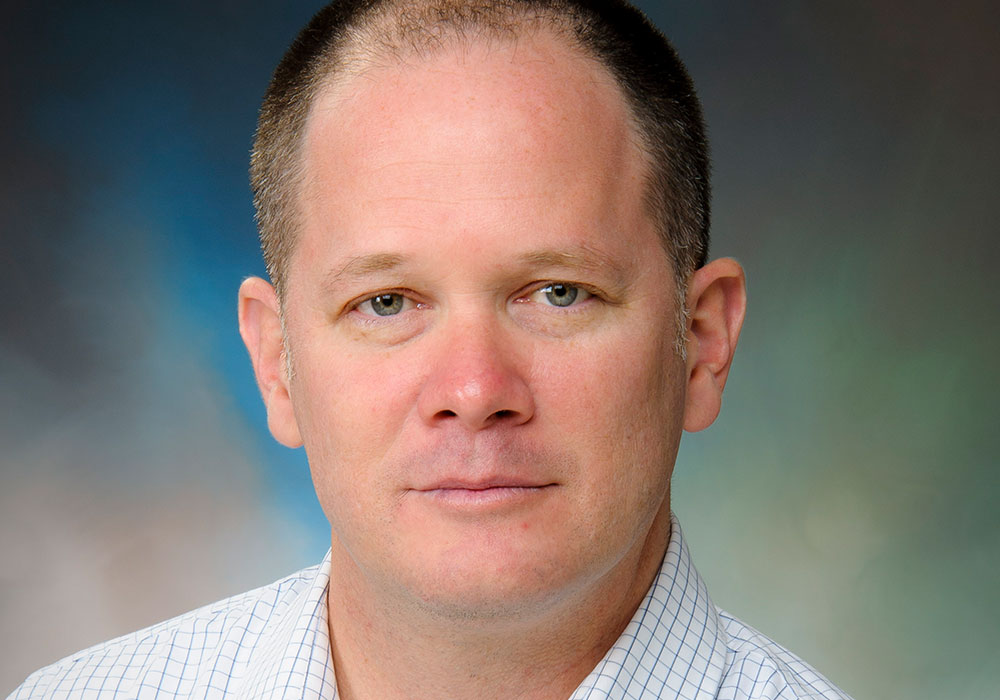
Dr. Cabada is our consulting tropical disease expert. He directs and oversees health monitoring and disease control of our programs.
The Director of a Collaborative Research Center in Cusco Perú, specializing in tropical diseases and diagnostics for parasitic infections. Dr. Cabada holds appointments at both Universidad Peruana Cayetano Heredia and University of Texas Medical Branch in Galveston.
He has experience conducting community-based interventions and has published extensively about infectious diseases and tropical neglected parasites.

Responsible for office administration, purchasing and logisitics, Edgar joined Rainforest Flow in 2003. Born and raised in Cusco, Perú, Edgar has a bachelor's degree in tourism from the National University San Antonio Abad of Cusco, Peru and speaks three languages.

Samuel Schwan is a simple man who wants to make the world a better place. He has found purpose and meaning in the service of others. This journey began at the age of 18, when he started his firefighting and EMS career. Through serving his communities in California, Minnesota, Montana, Idaho, and Wyoming as a first responder, he gained skills in situational assessment and decisive action under duress. The experiences in his early professional career and the journey of life have led him to be a part of larger impact programs that truly help those the world has left behind.
He was given the opportunity of a lifetime in 2021 to join Rainforest Flow on their mission to improve the lives of those who live in the rural Amazon through purposeful, community-empowering WASH programs. Samuel believes that through basic life foundations like clean water and hygiene, people have an opportunity to realize their life potential. He is incredibly grateful to his friends and colleagues at Rainforest Flow for allowing him to participate in this great mission. When not following Nancy through the jungle, you can find him on his yoga mat or playing in the mountains.

Steve has spent years as a creative director for agencies large and small. He successfully merges brand storytelling and business building marketing ideas that has helped brands explode. From King’s Hawaiian Foods to Lexus and Hyundai, he is highly skilled at finding the unique voice of a brand and connecting to consumers.
“Every brand has a story to tell. The challenge is telling it in a way that consumers want to listen to it.” In 2014, The Levit Agency was formed by breaking the mold of the agency and adopting a Mission Impossible approach. Hit teams, with laser focused skills come in to solve specific client needs, with team leaders guiding the story. Thus, the team is constantly changing, and our clients get best in class, bespoke service.
We deliver clean, safe water to indigenous people in rainforest villages. We capture the water from natural springs and purify it using rock and sand filters in portable geomembrane treatment tanks. Where topography permits, we distribute water by gravity feed to homes, schools, and health posts. In flatter terrain, we build rainwater harvesting systems to supply safe water.
We provide ongoing technical training to the village Water + Sanitation Committees (W+S). In time, villagers learn to maintain, repair, and expand their water and sanitation systems on their own, guaranteeing the sustainability of the program. Community members also learn to monitor water quality using the Hach portable microbiology lab, which helps to ensure safe drinking water.
W+ S Committee members and families work with us to gather rock, sand, wood, and other natural materials from forests and rivers. Together we build durable, practical sinks at homes and village schoolhouses. The sinks are built with underground greywater drains to avoid environmental contamination. We teach families and schoolchildren how to maintain their sinks and drains.
We build eco-friendly bathrooms with biodigester waste management tanks that do not contaminate the ecosystem. School bathrooms are well ventilated, easy to clean, and have separate sides for boys and girls. We are now piloting individual household bathrooms using the same technology.
We provide hygiene education, coronavirus prevention, and health monitoring to village families and schoolchildren. Community members who take a special interest in our program are trained as Health Promoters who monitor health and hygiene in their villages and share information with nearby villages.
Our health and anthropology team conducts baseline studies to monitor long-term health and social impacts. We track parasites, anemia, malnutrition, and gastrointestinal diseases before and after our intervention. This data helps us to measure health outcomes, adapt our programs, and inform health and government agencies.
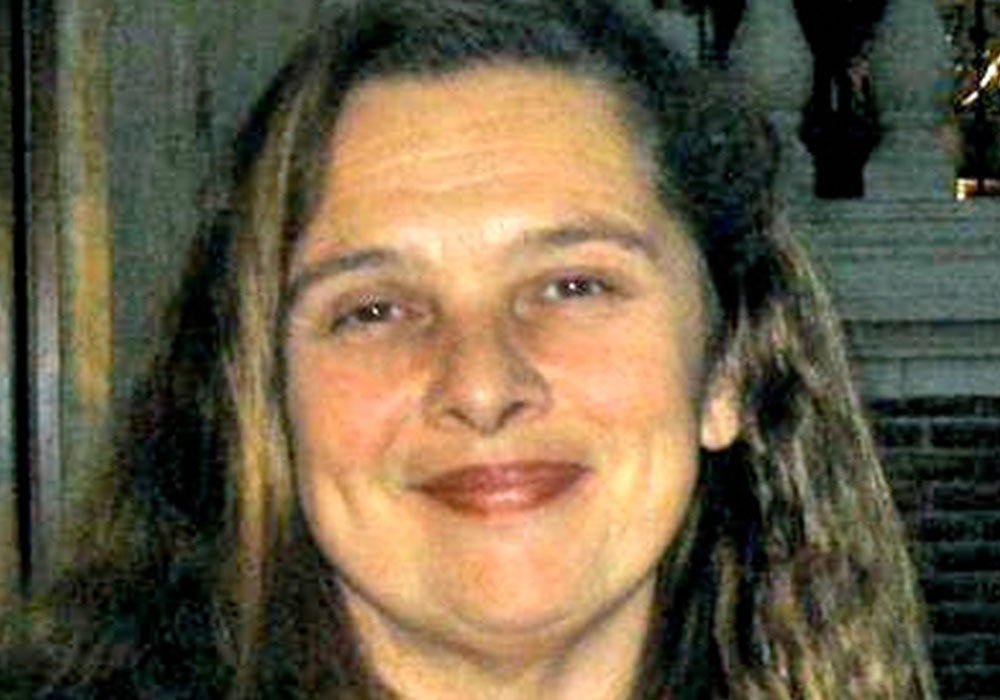
Marilyn Immitt ha sido una empresaria exitosa con más de 40 años de experiencia. Ha sido dueña y administradora de varios negocios, incluido un servicio de contabilidad, una franquicia de nutrición/bienestar y una empresa de construcción. También ha sido ganadera y criadora de caballos Purasangre durante muchos años. Más recientemente ha estado involucrada en artes sanadoras. Es una ávida ambientalista y le apasiona hacer llegar agua limpia a las familias indígenas en el Perú. Su amplia experiencia empresarial y dedicación al bienestar humano la hacen en un miembro clave del equipo de Rainforest Flow. Forma parte de nuestra junta directiva desde 2005.
.

Durante un viaje al Perú en 1999, buscando un entendimiento más profundo de su vida, esta ex fotógrafa de moda y publicidad de Los Ángeles, encontró su camino en la comunidad nativa de Huacaria. Desde ese momento asumió el compromiso de mejorar la salud de los niños y las familias de la Reserva de Biósfera del Manu. En los más de veinte años de trabajo en la zona, su compromiso se ha fortalecido.
Su espíritu emprendedor, actitud de positiva, amor por la naturaleza y su deseo de ver lo mejor en las personas, forman el corazón de la organización que fundó, Rainforest Flow. Los mismos elementos han guiado la visión de la organización por más de 20 años.
Después de cinco años ejecutando programas exitosos de agua, salud, saneamiento y capacitación técnica en la comunidad nativa de Huacaria, Nancy prosperó y llevó sus programas a otras tres comunidades.
Bajo el liderazgo de Nancy, Rainforest Flow ha impactado positivamente en la salud de tres generaciones de familias indígenas en la Amazonía peruana.
Ahora, Nancy planea construir el Centro de Educación y Investigación sobre agua, salud y saneamiento de Rainforest Flow en el bosque tropical lluvioso del Perú. El Centro será un lugar de encuentro en donde los pueblos indígenas aprendan y compartan sus experiencias para volverse gestores de su propia salud y medio ambiente.
Nancy pasa la mitad de su tiempo en el Perú, y el resto, coordinando con donantes, organizaciones comunitarias, antropólogos, profesionales en salud, ingenieros y otros socios para hacer realizad este Centro y la meta de ayudar a decenas de miles de indígenas a tener acceso a servicios humanos que dan vida.

Caleb es un maestro de obras peruano, experto en hidráulica, ingeniero sanitario autodidacta y miembro de la Junta Directiva de la Asociación Rainforest Flow. Su conocimiento, experiencia, creatividad y destreza en el trabajo de campo, son piezas fundamentales en todos nuestros proyectos.
Ha pasado más de 30 años construyendo y supervisando proyectos de agua y saneamiento en todo el Perú. Es el responsable técnico de todos los programas de construcción, capacitación técnica y vocacional de Rainforest Flow. Pasa aproximadamente 10 meses al año en el campo, trabajando con comunidades nativas y nuestros socios colaboradores en todo el mundo.

El trabajo antropológico del Dr. Shepard está enfocado en los pueblos indígenas de la Amazonía, con especial atención al chamanismo, las plantas medicinales, la antropología médica y el conocimiento ambiental tradicional.
Es investigador titular en Etnología Indígena en el Museu Paraense Emilio Goeldi en Belém, Brasil. Ha sido consultor de Rainforest Flow desde 2003. Habla 11 idiomas, incluido el idioma indígena Matsigenka. Ha realizado trabajo de campo con pueblos indígenas y tribales en América Latina, Asia y el Medio Oriente. Ha publicado más de 100 artículos científicos y ha trabajado en varias películas documentales, incluyendo al ganador de un premio Emmy.

La Dra. Izquierdo ha sido consultora y fuerza inspiradora de nuestro equipo desde 2004. Es especialista reconocida mundialmente en antropología médica, con gran experiencia de trabajo en el pueblo Matsigenka en el Perú y los mapuches de Chile. También ha realizado investigaciones con poblaciones urbanas en Estados Unidos. Sus investigaciones y contribuciones han proporcionado información importante para mejorar la salud y el bienestar en las comunidades nativas.

Moisés Mera es un reconocido ingeniero sanitario peruano con más de 25 años de experiencia profesional, tanto en el sector público como en el privado. Es especialista en sistemas de agua potable y saneamiento de zonas rurales y comunidades nativas, con especial atención a la sustentabilidad, participación comunitaria, tecnologías, inversiones, eficiencia económica, equidad social y conservación del medio ambiente.
Se unió a Rainforest Flow desde el 2004, sus habilidades para el desarrollo de soluciones prácticas con tecnologías simples y eficaces, así como su gran capacidad para comprender las necesidades del contexto cultural y ambiental de las comunidades nativas, lo hacen un miembro valioso del equipo.

Douglas W. Yu hizo su Ph.D. en Harvard con el famoso entomólogo y “padre de la biodiversidad” E.O. Wilson. Ha realizado investigaciones científicas y publicado ampliamente sobre la simbiosis entre plantas e insectos, modelos espaciales de coexistencia de especies, evolución de microbiomas y el uso de ADN ambiental para censar la biodiversidad a gran escala. También ha realizado trabajos en colaboración con colegas de las ciencias humanas sobre conocimientos ecológicos tradicionales, conflictos entre pueblos indígenas y áreas protegidas. Realizó más de 20 años de investigación de campo en el Parque Nacional del Manu. Es profesor de la Universidad de East Anglia en el Reino Unido y del Instituto de Zoología de Kunming en China. También es cofundador de la empresa NatureMetrics, que brinda servicios de evaluación de la biodiversidad basados en el DNA ambiental para los sectores público y privado.

El doctor Miguel Cabada es nuestro consultor en enfermedades tropicales. Dirige y supervisa nuestros programas de monitoreo de salud. Tiene experiencia en la realización de intervenciones comunitarias y ha publicado extensamente sobre enfermedades infecciosas y parásitos tropicales poco estudiados.
Es director de un centro de investigación colaborativa en Cusco, especializado en enfermedades tropicales y diagnóstico de infecciones parasitarias. Forma parte de la Universidad Peruana Cayetano Heredia de Lima, así como de la División Médica de la Universidad de Texas en Galveston, EUA. Se unió a Rainforest Flow en el 2011.

Edgar es responsable de la administración de la oficina, compras y logística. Se unió a Rainforest Flow en 2003. Nacido y criado en Cusco, Perú, es licenciado en turismo por la Universidad Nacional San Antonio Abad de Cusco y habla tres idiomas.

Judson Rothschild es diseñador de muebles y decorador de interiores de renombre internacional, agente inmobiliario en Beverly Hills, California, autor y hombre de muchos talentos. Es director ejecutivo de Rothschild Productions, Rothschild Interiors y The Rothschild Collection. Ha contribuido con su experiencia en gestión comercial, diseño y ejecución de proyectos como miembro de la junta directiva de Rainforest Flow desde 2004.
Nuestras tecnologías proveen de agua limpia y segura a comunidades indígenas en la Amazonia. Captamos el agua de manantiales naturales y la purificamos mediante filtros compuestos de piedras y arena en tanques portátiles de geomembrana. Donde la topografía lo permite, distribuimos el agua por gravedad a hogares, escuelas y puestos de salud. En terrenos más llanos, construimos sistemas de recolección de agua de lluvia para suministrar agua segura.
Brindamos capacitación técnica permanente a los Comités de Agua y Saneamiento (JASS) de las comunidades. Con el tiempo, los comuneros aprenden a mantener, reparar y ampliar sus sistemas de agua y saneamiento por su cuenta, lo que garantiza la sostenibilidad del programa. Los miembros de la comunidad también aprenden a monitorear la calidad del agua utilizando un laboratorio portátil de microbiología de marca HACH, que ayuda a garantizar el agua segura para consumo.
Los miembros del Comité JASS y sus familias trabajan con nosotros para recolectar piedras, arena y otros materiales naturales de los bosques y ríos. Juntos construimos piletas durables y prácticas en las casas y escuelas. Las piletas están diseñadas con zanjas de infiltración subterráneas como desagüe para las aguas grises, evitando la contaminación ambiental. Enseñamos a las familias y escolares a mantener sus piletas y desagües.
Construimos baños ecológicos con biodigestores que tratan los residuos sin contaminar el ecosistema. Los baños para las escuelas son bien ventilados, fáciles de limpiar y tienen cabinas separadas para niños y niñas. Ahora estamos haciendo proyectos piloto de baños domésticos individuales, utilizando la misma tecnología.
Brindamos educación sobre higiene, prevención del coronavirus y monitoreo de salud a familias y estudiantes escolares en las comunidades. Los miembros de la comunidad que tienen un interés especial en nuestro programa, son capacitados como Promotores de Salud para monitorear la salud e higiene en sus comunidades, así como compartir información con comunidades vecinas.
Nuestro equipo de salud y antropología realiza estudios de línea de base para monitorear los impactos sociales y de salud a largo plazo. Realizamos el monitoreo de parásitos, anemia, desnutrición y enfermedades gastrointestinales antes y después de nuestra intervención. Estos datos nos ayudan a medir los resultados de salud, adaptar nuestros programas e informar a las agencias gubernamentales y profesionales en salud.

Mr. William Yotive is currently the Model UN Coordinator for WFUNA where he is re-sponsible for planning conferences and developing educational materials and curricula for Model UN training purposes globally.
Mr. Yotive has also served as the Curriculum Director for the WFUNA summer youth program in the Republic of Korea that focused on teaching students of all ages about their Sustainable Development Goals.
Prior to working at WFUNA, Mr. Yotive was Project Manager of the United Nations Global Teaching and Learning Project for more than 14 years where he was responsible for creating educational materials for schools around the world on the United Nations and global issues on its agenda.
Mr. Yotive is currently completing a guide for the International Labour Organization (ILO) on how to accurately simulate an International Labour Conference and worked with the World Health Organization to develop the first-ever Global Model WHO. His United Nations Guide to Model UN was recently cited in a UN General Assembly resolution on Model UN (A/RES/77/336).
Prior to working at the UN, Mr. Yotive was a Director of Research at Sesame Workshop which produces educational television programs for children, such as Sesame Street. He has designed and conducted many studies to evaluate the impact that these programmes have on the cognitive, social and emotional development of children.
Mr. Yotive is an Advisory Council Member of the Committee on Teaching about the United Nations and also serves on the International Institute on Peace Education Transna-tional Advisory Group. In addition, he is currently a Senior Scholar at the University of Memphis School of Global Health and an Off-Campus Instructor in the Global Compe-tency Center and Int'l Career Development Instruction Studio at Zhejiang University in China.

Ms. Vanessa Tobin is a global international development and water, sanitation, and hygiene (WASH) expert with 40 years of experience implementing and managing international water supply and sanitation programs. Ms. Tobin has served as an Executive Board member for Helvetas USA and the Millennium Water Alliance. Her last assignment was as GOAL USA's Vice President (2019-2022).
Ms. Tobin worked with UNICEF for nearly 25 years, serving in multiple senior positions. From 2008-2012, Ms. Tobin led UNICEF activities in the Philippines,. Before that, Ms. Tobin served as the Chief of the Water, Environment, and Sanitation Division, providing guidance and support to UNICEF’s global water, environment, and sanitation programs. She was responsible for the development of the new UNICEF sector strategy (2006-2015), the creation of the UN Emergency WASH Cluster, oversaw the UN monitoring program that measured progress toward achievement of MDG 7 for water supply and sanitation (UNICEF/WHO Joint Monitoring Program); and significantly increased global sector financing up to 250 million per annum through new agreements with bilateral, multilateral partners and Foundations.
Over her career, Ms. Tobin has been responsible for implementing several country program portfolios valued at up to $100M. As a leader in her field, Ms. Tobin has worked closely with multiple UN agencies, including UNEP, WHO, UNHCR, and UNWATER. Ms. Tobin holds an MSc in Public Health in Developing Countries from the London School of Hygiene and Tropical Medicine and an MPA from Harvard University.

Gunnar K. Nilsen is president of Silver Ridge Capital. He has a diverse background from finance, engineering and entrepreneurship. He is an advisor to early-stage companies through his firm Silver Ridge Capital based in Oslo, Norway. Mr. Nilsen is also co-founder and chairman of a start-up focusing on developing innovative instrumentation solutions.
He began his career in 1987 at ABB in Norway, where he held positions in design engineering and project management related to oil & gas process control systems. In 1990, he moved to California and began working for Kavlico Corporation in sensor design engineering and later business development.
During 1994 to 1998, Mr. Nilsen resided in Norway and worked in the corporate finance division of Alfred Berg, the leading Nordic investment bank at the time. During his tenure at Alfred Berg, he carried out a number of successful corporate finance transactions and became a partner of the firm. While in Norway, Mr. Nilsen also co-founded Presens, an electronic sensor company. He was an active member of the board of directors from the company’s inception in 1996 until the successful sale to General Electric in 2012.
Mr. Nilsen returned to California in 1998 where he held positions in equity research and portfolio management. He was Director of Investments for Fred Kavli where he oversaw a portfolio of investments in equities and alternative assets. He has also served as an advisor to the Kavli Foundation Endowment and has been a member of the Foundation’s Investment Committee for a number of years. He moved back to Norway in 2014.
He has an MBA degree from Pepperdine University and a Master of Science degree in Electrical Engineering and Cybernetics from the Norwegian University of Science and Technology (NTNU).
Mr. Nilsen is a board member of the Trondheim Foundation for Scientific Research at NTNU.